Who can resist the mouthwatering aroma of a perfectly cooked rotisserie chicken? Whether it’s a family gathering, a summer picnic, or a quick and convenient dinner option, rotisserie chicken has become a popular choice for many.
But what about our furry friends? Can dogs enjoy this delicious treat too? The answer is generally yes! Many dogs can indeed eat rotisserie chicken, and it can be a nutritious and tasty occasional addition to their diet, as long as all of the safety precautions have been met. On the other hand, dogs suffering from chicken allergies should steer clear of it.
However, like all foods, there are a few things to consider before sharing this scrumptious delight with your canine companion. Read on to find out how to properly feed rotisserie chicken to your furry friend!
Should You Feed Your Dog Rotisserie Chicken?
While it’s perfectly fine to give your dog a taste of rotisserie chicken, it’s essential to exercise caution and moderation. Dogs have different nutritional needs than humans, and their digestive systems may not tolerate certain ingredients or seasonings.
In addition, the bones of rotisserie chicken can pose a choking hazard, or splinter and cause internal injuries or a gastrointestinal blockage. With this in mind, it’s crucial to remove the skin, bones, and any spices or seasoning before offering it to your dog.
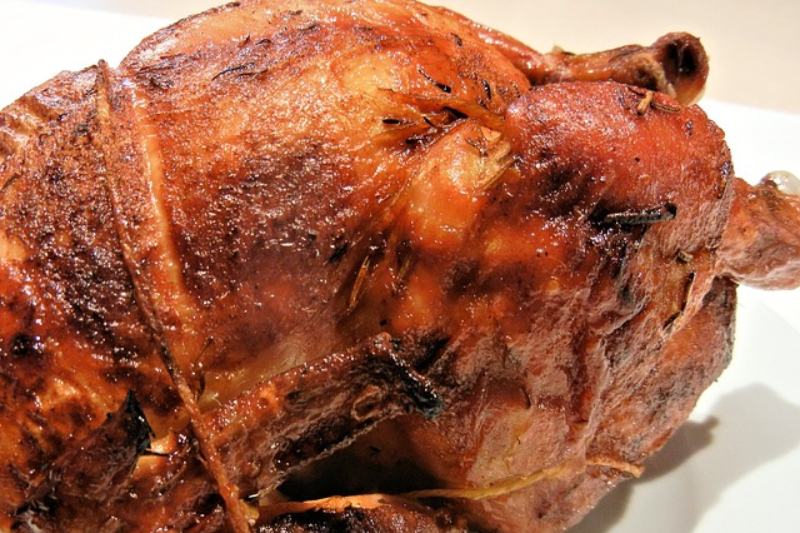

Potential Benefits of Rotisserie Chicken
Rotisserie chicken contains nutrients that can benefit your dog’s overall health. It is a rich source of protein, vitamins, and minerals. A typical rotisserie chicken contains vitamins B6 and B12, niacin, selenium, phosphorus, and zinc. These nutrients contribute to a healthy immune system, strong bones, and proper cell function.
The natural flavors of rotisserie chicken can also be enticing for picky eaters or dogs with a decreased appetite. It can serve as a tempting food topper or an ingredient in homemade dog treats, encouraging them to eat their regular meals.
Chicken can be included as a regular protein source as part of a home-cooked diet, but it’s important to have a veterinary nutritionist formulate their meal plan with the right mix of ingredients if your dog is primarily being fed a homemade diet. Generally, rotisserie chicken should be considered an occasional treat, and not a primary food source for your dog.
If you need to speak with a vet but can't get to one, head over to PangoVet. It's our online service where you can talk to a vet online and get the advice you need for your pet — all at an affordable price!
Risks of Feeding Rotisserie Chicken to Your Dog
While rotisserie chicken can be a tasty and nutritious treat for dogs, there are some risks associated with feeding it to them. It’s important to be aware of these potential dangers to ensure the safety and well-being of your furry friend. Here are some risks to consider.
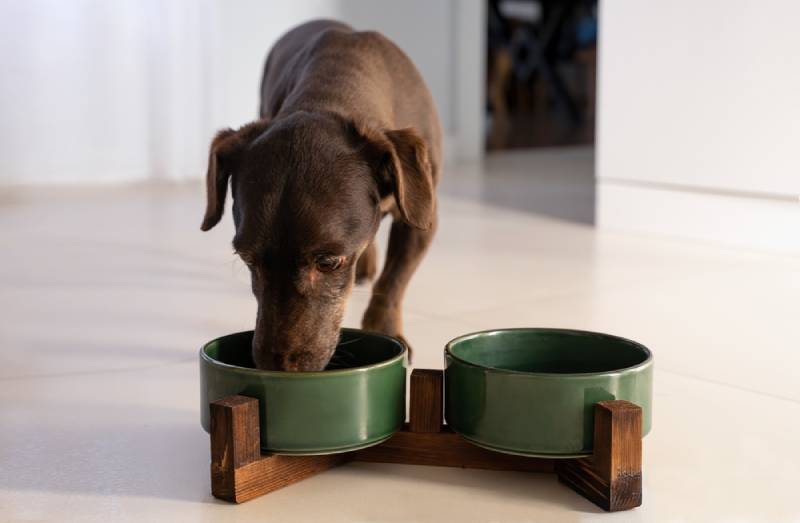
Bones
One of the most significant risks of feeding rotisserie chicken to dogs is the presence of bones. Cooked bones, especially those that are small and brittle, can splinter easily when chewed, leading to choking hazards or causing damage to the digestive tract. It’s crucial to remove all bones from the chicken before offering it to your dog.
Seasonings and Spices
Rotisserie chicken is often seasoned with various herbs, spices, and even salt. While these flavors enhance the taste for humans, they can be harmful to dogs. Many spices and seasonings can cause gastrointestinal upset, allergic reactions, or even toxic reactions in dogs, such as garlic and onions, which are poisonous to dogs. It’s best to give your dog plain, unseasoned rotisserie chicken to avoid any potential complications.
Fat Content
The skin of rotisserie chicken is usually high in fat, which can predispose to pancreatitis or other digestive issues in dogs, especially if consumed in large quantities. Fat-rich foods can be difficult for dogs to digest, and excessive fat intake can result in stomach upset, diarrhea, or even long-term health problems. Always remove the skin before offering rotisserie chicken to your dog.
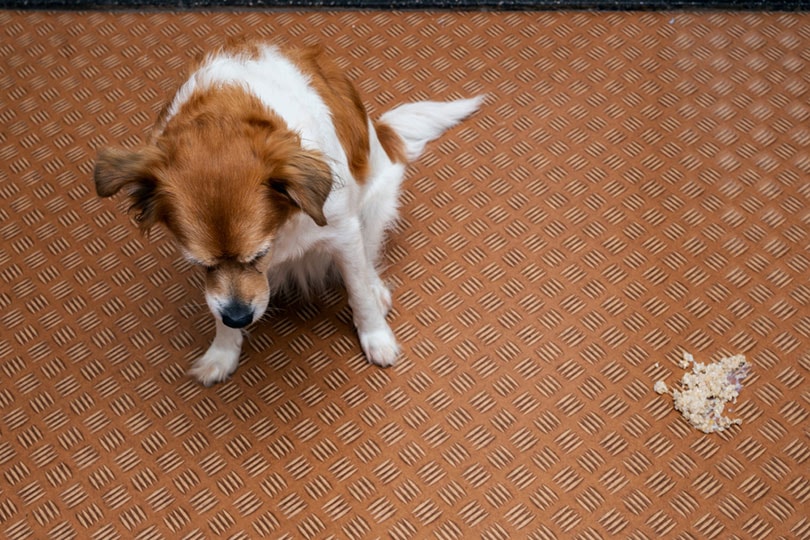
Sodium Content
Commercially prepared rotisserie chicken may have high sodium levels, as salt is often used as a seasoning. Dogs are more sensitive to sodium than humans, and excessive salt intake can lead to dehydration and electrolyte imbalances. Limit your dog’s intake of salted rotisserie chicken to prevent potential health issues.
Allergies and Sensitivities
Some dogs may be allergic or sensitive to chicken or certain additives used in the preparation of rotisserie chicken. Food allergies in dogs typically affect the skin leading to signs such as itching, redness of the skin, and rashes. It can also cause gastrointestinal upset. If you notice any adverse reactions after feeding your dog rotisserie chicken, consult with your veterinarian to determine the underlying cause.

FAQ
Is Rotisserie Chicken Better Than Other Kinds of Chicken?
While rotisserie chicken is a delectable treat, you may be surprised why it is set apart from other types of cooked chicken. One advantage is that rotisserie chicken is often cooked with the skin intact, which adds moisture and flavor.
However, the skin should be removed before feeding it to your dog, as it is high in fat and can cause digestive issues. Additionally, the slow-cooking process used in rotisserie preparation enhances the natural flavors of the chicken, making it more appealing to dogs.
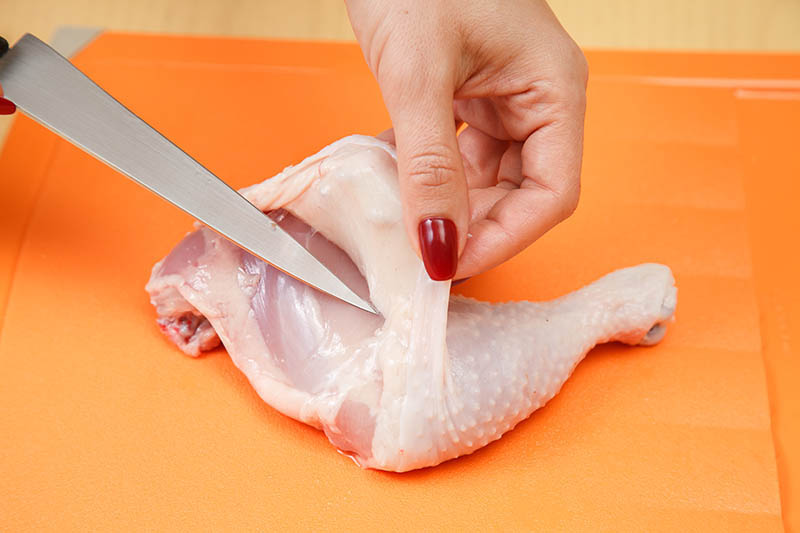
What Other Kinds of Chicken Can I Feed My Dog?
If you’re looking to include chicken in your dog’s diet, there are other options besides rotisserie chicken. Plain, cooked chicken breast or thigh meat without seasoning or added ingredients is a safe choice. You can boil, bake, or grill the chicken to retain its nutritional value.
It’s essential to ensure that the chicken is thoroughly cooked to avoid any potential bacterial contamination and foodborne illness. Remember to remove the skin and bones before serving it to your dog. By preparing chicken at home, you have full control over the ingredients, making it a healthier option for your furry friend.
If you are keen on including chicken in your dog’s diet, the simplest and safest way is to invest in human-grade dog food that meets AAFCO’s standards for a complete and balanced pup diet.
Is Rotisserie Chicken Healthy for Dogs?
Rotisserie chicken can be a good source of lean protein, which is essential for muscle growth and repair.
Protein also helps maintain a healthy coat, supports the immune system, and provides energy. However, keep in mind that rotisserie chicken is typically seasoned and may contain added salt, which can be harmful to dogs in large quantities.
As mentioned earlier, it’s best to remove the skin, bones, and any seasoning before sharing this treat with your pup.
Do Dogs Like Rotisserie Chicken?
Absolutely! Dogs are notorious food lovers, and rotisserie chicken is no exception. The enticing aroma and savory taste of this delicious treat can make your pup’s tail wag with excitement. The combination of tender meat and mouth-watering flavors is often irresistible to dogs.
However, keep in mind that not all dogs have the same taste preference. While rotisserie chicken is generally considered a tasty food for most dogs, some dogs may prefer not to eat it. There’s nothing wrong with your dog or the chicken, it simply means they have their own preference!

How Can I Feed Rotisserie Chicken to My Dog?
When it comes to preparing and serving rotisserie chicken to your dog, there are a few guidelines to follow. First and foremost, remove the skin, as it can be high in fat and difficult for dogs to digest as well as containing most of the added seasonings.
Next, make sure to remove any bones, as they can be a choking hazard or cause injury or a gastrointestinal blockage. Shred or chop the chicken into small, bite-sized pieces to make it easier for your dog to eat and digest.
It’s also important to avoid adding any seasoning, spices, or sauces, as they can be harmful to your dog’s health. Plain, unseasoned rotisserie chicken is the safest option for your furry friend.
Can I Feed Rotisserie Chicken to My Dog Every Day?
While dogs can enjoy the occasional treat of rotisserie chicken, it should not be a part of their daily diet. Remember that dogs have specific dietary requirements, and a well-balanced diet consists of a variety of nutrients from different sources.
Rotisserie chicken should be considered a special treat rather than a staple food. Feeding your dog rotisserie chicken every day could lead to an imbalance in their diet, as it lacks the necessary vitamins, minerals, and other essential nutrients found in a complete dog food. Always consult with your veterinarian to determine the best diet for your specific dog’s needs.
Final Thoughts
In conclusion, many dogs can indeed enjoy the delightful taste of rotisserie chicken, as long as they’re not suffering from a chicken food allergy. It can be a healthy and nutritious treat when prepared and served appropriately.
While rotisserie chicken can provide several health benefits, it should be considered an occasional addition to their diet, rather than a daily staple. When in doubt, consult with your veterinarian to determine the best feeding plan for your furry friend. So, go ahead and treat your dog to a small serving of scrumptious rotisserie chicken, and watch their tail wag with delight!
Featured Image Credit: chefkeem, Pixabay
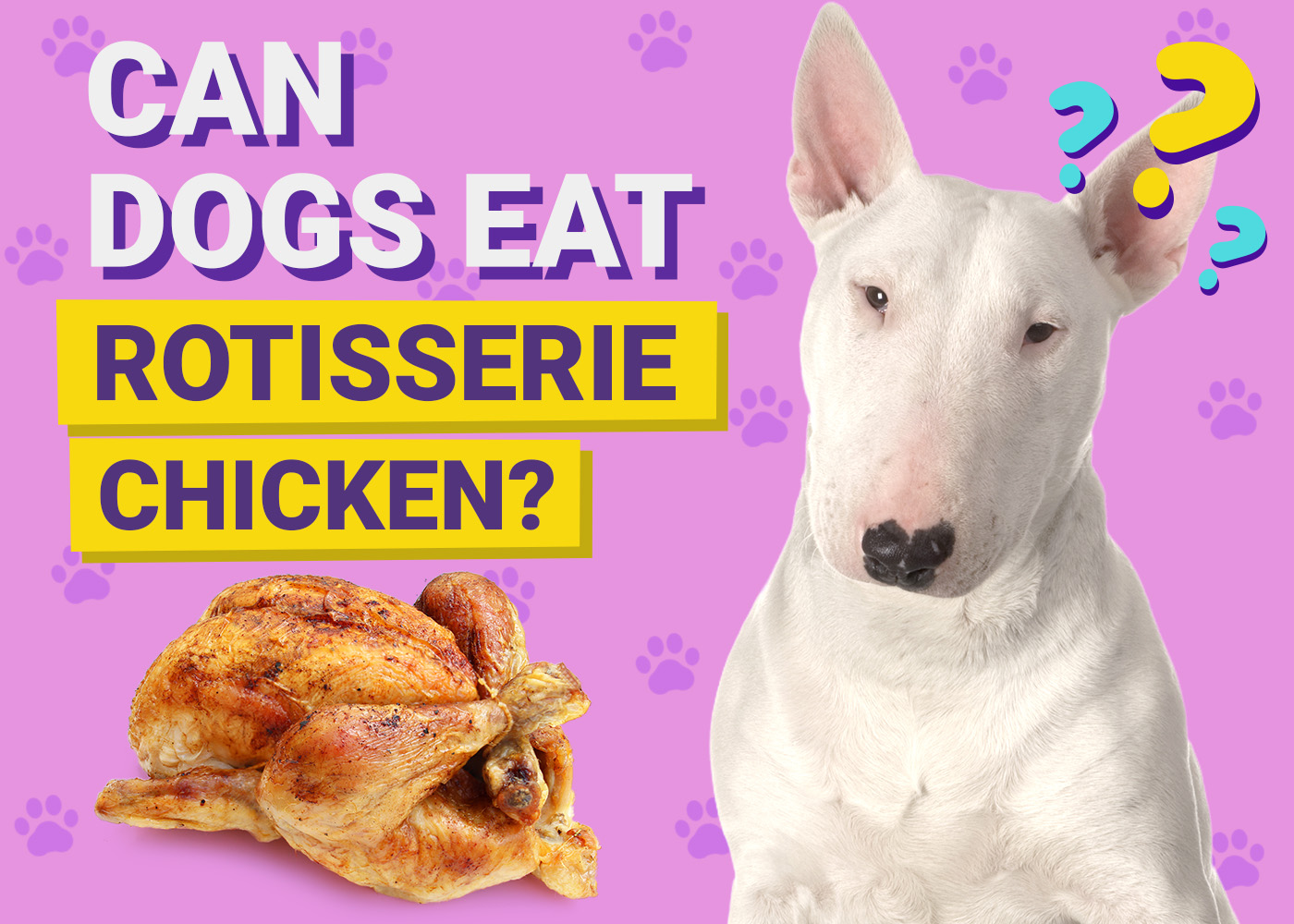







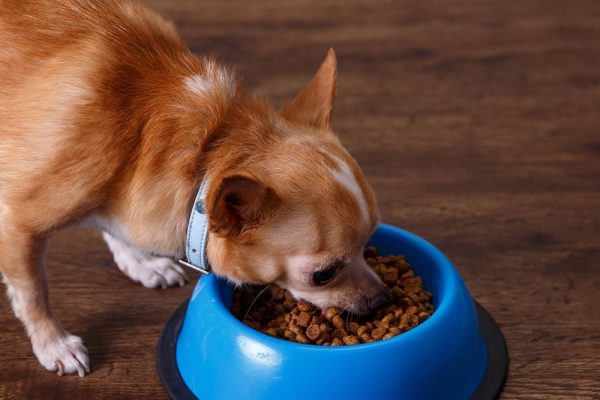
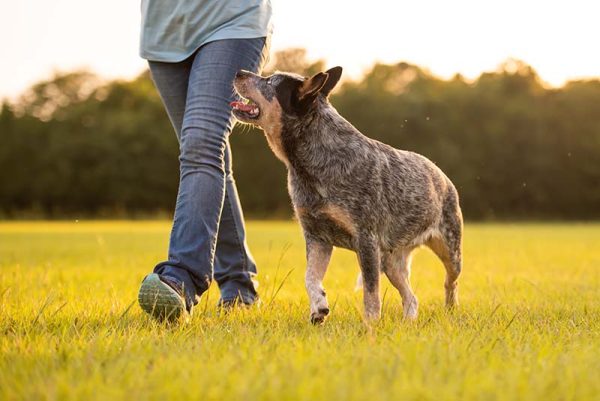






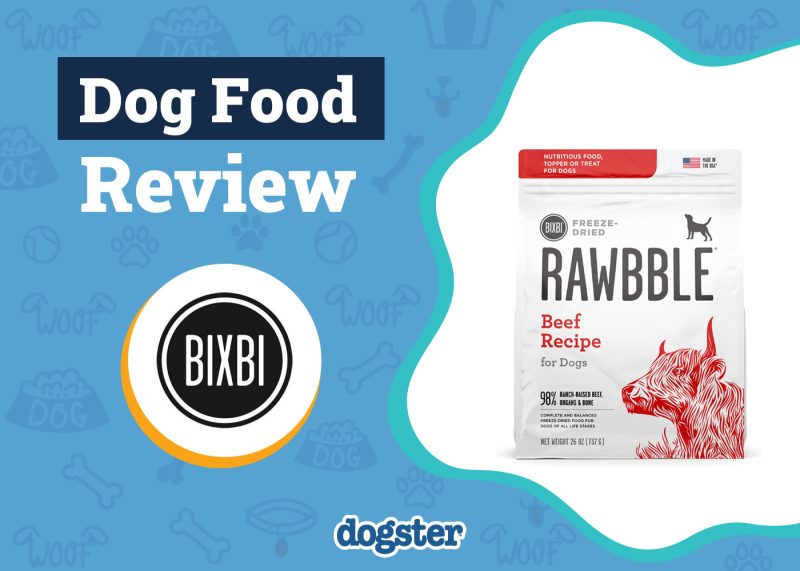

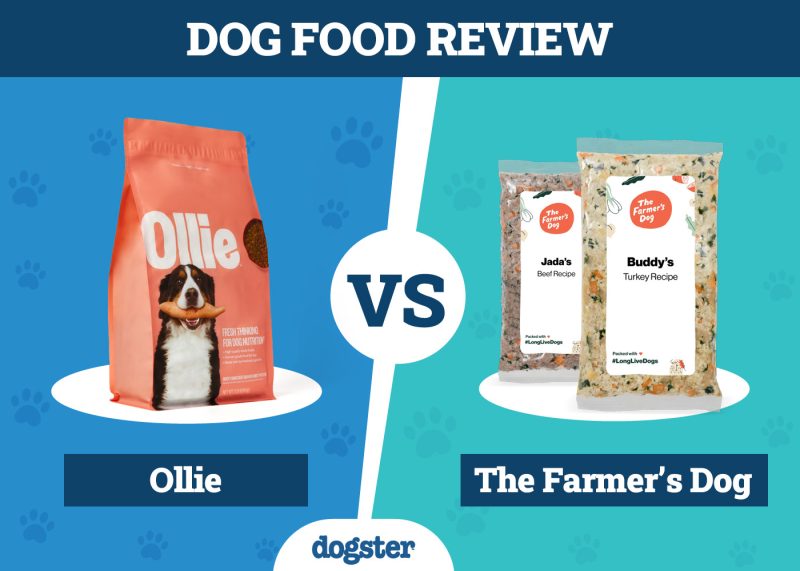


2 Responses
Thank you for your article. It's nice to know that my dog can enjoy rotisserie chicken. I currently make my dog her food with a vet approved recipe. The recipe calls for ground chicken, in addition to other healthy ingredients. Can I substitute rotisserie chicken for the ground chicken? Of course I will remove the skin and bones and seasoning.
Hi Kristi, thank you for reading our article. It’s great to hear that you're already making your dog’s food with a vet-approved recipe. Substituting rotisserie chicken for ground chicken occasionally is fine as long as you remove the skin, bones, and seasoning, as you mentioned. However, there are some macro and micronutrient differences; it depends on the part of the chicken you use. Therefore making changes in a complete and balanced recipe you will use every day is not recommended. By the way. did you know that you can get a recipe that is formulated for your individual dog's needs at pangovet.com? Feeding a complete and balanced diet is super important to ensure our dogs thrive. Feeding fresh homemade food is such a great step but making it right is very important. Thank you very much for reading us and for loving your dog! https://pangovet.com